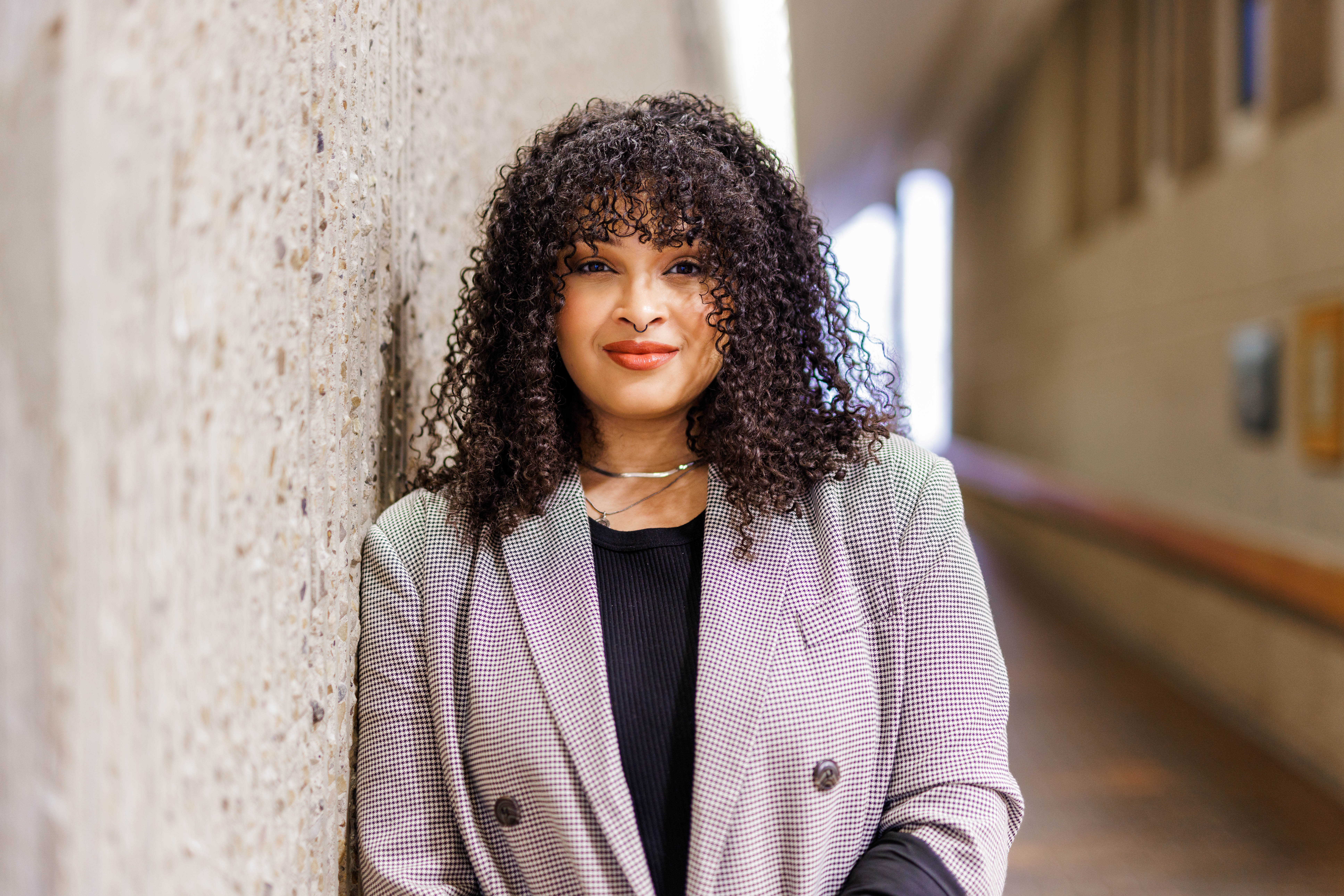Rebecca Alexander named inaugural recipient of the Violet King Henry Law School Award
Carmen Rojas - 5 February 2024

Rebecca Alexander, ‘24 JD, was researching law school when she first came across the name Violet King Henry, ‘53 LLB, and learned of her trailblazing legacy as the first Black graduate of the University of Alberta Faculty of Law, the first Black woman to practise law in Canada and the first Black lawyer admitted to the Law Society of Alberta.
Now, as a third-year student preparing to embark on her own career in law, Alexander has been named the inaugural recipient of an award named in King Henry’s honour.
The Violet King Henry Law School Award, which was announced in 2022, is given annually to a Black student in the Faculty of Law based on academic standing, demonstrated leadership and commitment to the advancement of equity, diversity and inclusion. The $20,000 award is supported by Miller Thomson LLP.
“It’s a big honour but also very intimidating,” says Alexander. “It’s really nice to be recognized for the work that I’ve done in my community and feel like I’ve made a difference at the U of A.”
Alexander’s extensive community involvement dates back to her years as an undergraduate student. While pursuing a double major in psychology and sociology (with a focus on criminology), she volunteered on campus with the Peer Support Centre and the Sexual Assault Centre. She was also actively involved with the Elizabeth Fry Society of Northern Alberta – a local organization that provides services for women, girls and gender diverse people who are in contact with the legal system.
Alexander traces her initial interest in law school back to this passion for volunteer work and desire to make a difference in her community. Her ultimate inspiration to pursue law came from her experience working as the housing coordinator for the Elizabeth Fry Society after graduation.
Over the past three years she’s continued to balance academics with a deep commitment to community work.
As a first and second-year law student, Alexander volunteered with Student Legal Services (SLS), where she worked on a criminal law project. For the past two years she has served on the executive of the OUTLaw, where she spearheaded the Proud to be Me campaign for the SLS Trans ID Clinic. The clinic provides free legal assistance to trans and non-binary people so that they can complete the documents needed to change their names and gender markers.
 Alexander has also spent two years on the executive of the U of A chapter of the Black Law Students’ Association (BLSA), where she has coordinated events such as a BIPOC (Black, Indigenous, People of Colour) barbecue to help 1Ls connect with upper-year students.
Alexander has also spent two years on the executive of the U of A chapter of the Black Law Students’ Association (BLSA), where she has coordinated events such as a BIPOC (Black, Indigenous, People of Colour) barbecue to help 1Ls connect with upper-year students.
“BIPOC people face more barriers in the legal profession, and sometimes, discussing these barriers, like racism, can be particularly challenging in certain environments,” she says. “We just wanted to create a comfortable space for people to talk about their fears and issues that they might face in the legal profession.”
This month, Alexander launched a joint event between the U of A’s BLSA, Black Medical Students’ Association and Black Pharmacy Students’ Association, where undergraduates interested in these programs can talk to current students about their experiences.
Alexander admits that while working to improve the representation of Black students in law school is gratifying, it can also take a toll.
“With systematic oppression you always need to keep pushing forward and pushing forward. I think we’re going in the right direction, but as a student who will only be here for three years, it’s quite a daunting task,” she says, stressing that long-term change requires the Faculty to keep actively developing initiatives to increase the Black student population. “In order to attract Black students to our institution, it is essential that they perceive and experience a genuine sense of welcome and inclusivity at the University.”
Alexander also stresses the importance of mentorship, pointing to Professor Ubaka Ogbogu as someone who is “an amazing mentor to all students, but in particular Black students.”
“Addressing racism, particularly when personally experiencing it, is inherently challenging. Discussing it with someone who hasn't experienced it can add another layer of difficulty,” she says. “Having a mentor who shares your background eliminates the need to explain certain fundamentals. It's not to undermine supportive allies, but BIPOC mentors, having been through similar experiences, can provide advice from a more personal perspective on navigating such situations.”
Alexander is now getting ready for the next step in her career – completing her articles with the Government of Alberta, where she will rotate through the Legal Services Division and the Crown Prosecution Service. Ultimately, she has her sights set on practising criminal law as a crown prosecutor.
As she looks to the future, Alexander says she also draws inspiration from meeting Violet King Henry’s daughter, Jo-Anne Henry, when she spoke on campus in 2022.
“Jo-Anne illuminated some of the challenges her mother, Violet King Henry, faced, making her more relatable and serving as a greater source of inspiration,” she says.
“But also Jo-Anne is an incredible person in her own right who demonstrates how to be your authentic self and not compromise your beliefs to gain social acceptance. This is a challenge that I believe Black women, in particular, often face,” she adds. “She has encountered her own set of challenges, but she consistently emphasized that everything will eventually fall into place. Her message encouraged me to trust in myself and my abilities.”